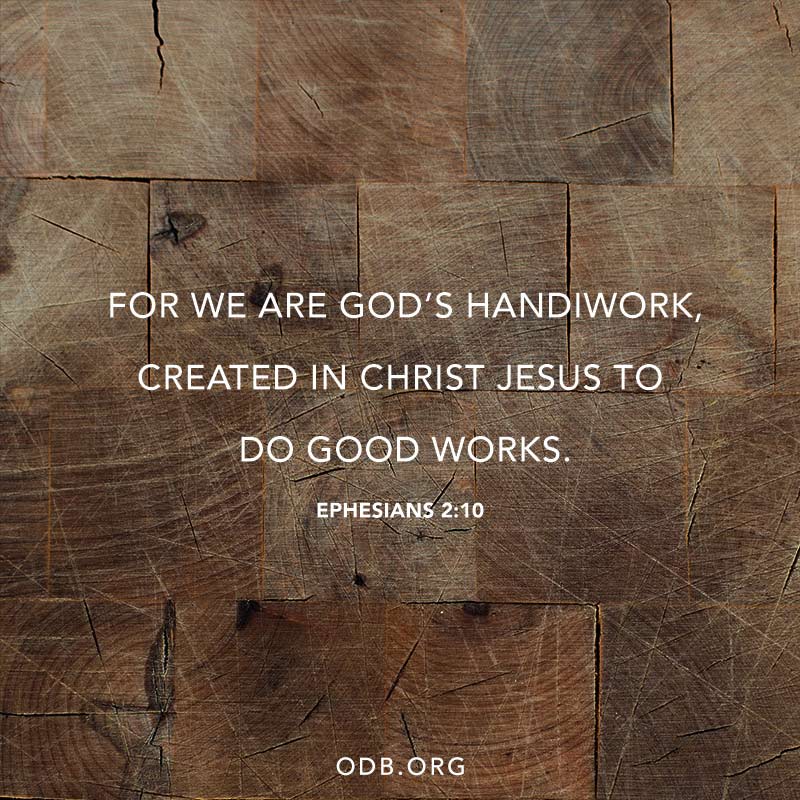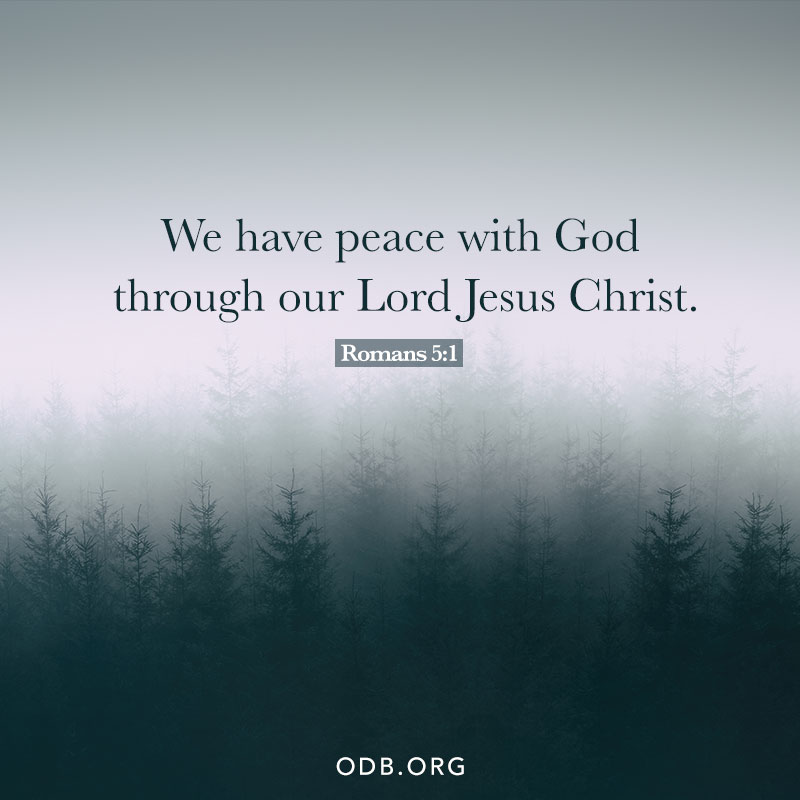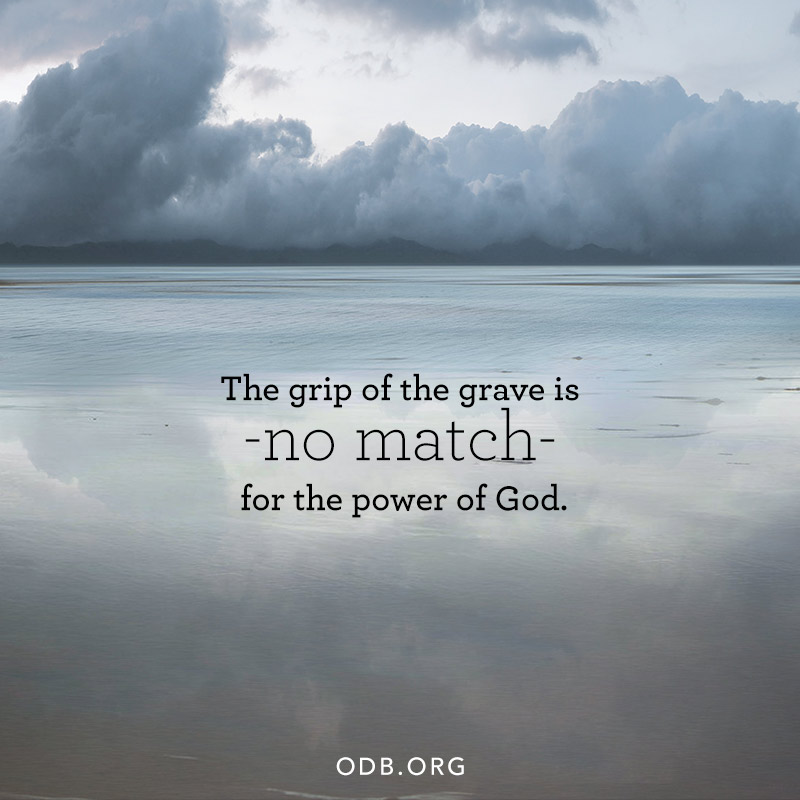
Unexpected Kindness
My friend was waiting to pay for her groceries when the man in front of her turned around and handed her a voucher for £10 ($14) off her bill. Short on sleep, she burst into tears because of his kind act; then she started laughing at herself for crying. This unexpected kindness touched her heart and gave her hope during a period of exhaustion. She gave thanks to the Lord for His goodness extended to her through another person.
The theme of giving was one the apostle Paul wrote about in his letter to Gentile Christians in Ephesus. He called them to leave their old lives behind and embrace the new, saying that they were saved by grace. Out of this saving grace, he explained, flows our desire to “do good works,” for we have been created in God’s image and are His “handiwork” (2:10). We, like the man at the supermarket, can spread God’s love through our everyday actions.
Of course, we don’t have to give material things to share God’s grace; we can show His love through many other actions. We can take the time to listen to someone when they speak to us. We can ask someone who is serving us how they are. We can stop to help someone in need. As we give to others, we’ll receive joy in return (Acts 20:35).

The Great Crescendo
My parents taught me to love all sorts of music—from country to classical. So, my heart beat rapidly as I walked into the Moscow Conservatory, one of Russia’s great music halls, to hear the Moscow National Symphony. As the conductor drove the musicians through a masterful Tchaikovsky piece, themes developed that gradually built to a powerful crescendo—a profound and dramatic musical climax. It was a magical moment, and the audience stood to roar its approval.
The Scriptures move toward the most powerful crescendo of history—the cross and resurrection of Jesus Christ. In the moments following Adam and Eve’s fall into sin in the Garden of Eden, God promised that a Redeemer would come (Genesis 3:15), and throughout the Old Testament that theme moved forward. The promise rang out in the Passover lamb (Exodus 12:21), the hopes of the prophets (1 Peter 1:10), and the longings of the people of God.
First John 4:14 confirmed where that story had been going: “We have seen and testify that the Father has sent his Son to be the Savior of the world.” How? God accomplished His promised rescue of His broken world when Jesus died and rose again to forgive us and restore us to our Creator. And one day He will come again and restore His whole creation.
As we remember what God’s Son has done for us, we celebrate the great crescendo of God’s grace and rescue for us and His world—Jesus!


Where Is Peace?
“Do you still hope for peace?” a journalist asked Bob Dylan in 1984.
“There is not going to be any peace,” Dylan replied. His response drew criticism, yet there’s no denying that peace remains ever elusive.
About 600 years before Christ, most prophets were predicting peace. God’s prophet wasn’t one of them. Jeremiah reminded the people that God had said, “Obey me, and I will be your God, and you will be my people” (Jeremiah 7:23). Yet they repeatedly ignored the Lord and His commands. Their false prophets said, “Peace, peace” (8:11), but Jeremiah predicted disaster. Jerusalem fell in 586
Peace is rare. But amid Jeremiah’s book of dire prophecies we discover a God who loves relentlessly. “I have loved you with an everlasting love,” the Lord told His rebellious people. “I will build you up again” (31:3–4).
God is a God of love and peace. Conflict comes because of our rebellion against Him. Sin destroys the world’s peace and robs each of us of inner peace. Jesus came to this planet to reconcile us to God and give us that inner peace. “Since we have been justified by faith, we have peace with God through our Lord Jesus Christ,” wrote the apostle Paul (Romans 5:1). His words are among the most hope-filled ever written.
Whether we live in a combat zone or dwell in a serene neighborhood with nary a whisper of war, Christ invites us into His peace.

Impossible to Hold
Swimming with friends in the Gulf of Mexico, Caitlyn encountered a shark, which grabbed her legs and pulled at her body. To counter the attack, Caitlyn punched the shark in the nose. The predator unclenched its jaws and swam away in defeat. Although its bite caused multiple wounds, which required over 100 stitches, the shark was unable to keep Caitlyn in its grasp.
This story reminds me of the fact that Jesus delivered a blow to death, ending its power to intimidate and defeat His followers. According to Peter, “It was impossible for death to keep its hold on [Jesus]” (Acts 2:24).
Peter said these words to a crowd in Jerusalem. Perhaps many of them had been the ones yelling out, “Crucify him!” to condemn Jesus (Matthew 27:23). As a result, Roman soldiers fastened Him to a cross where He hung until they confirmed He was dead. Jesus’s body was carried to a tomb where it stayed for three days until God resurrected Him. After His resurrection, Peter and others spoke and ate with Him, and after forty days they watched Him ascend into heaven (v. 32).
Jesus’s life on earth ended amidst physical suffering and mental anguish, yet God’s power defeated the grave. Because of this, death—or any other struggle—lacks the ability to keep us in its grip forever. One day all believers will experience everlasting life and wholeness in God’s presence. Focusing on this future can help us find freedom today.
